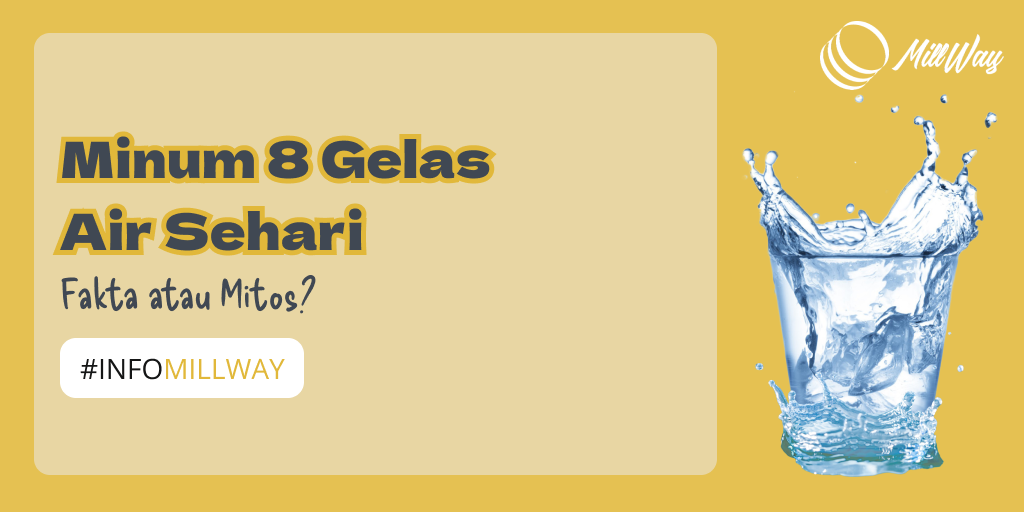
We often hear the recommendation to drink 8 glasses of water a day to stay healthy and hydrated. But is this a true fact or just a myth passed down through generations? Does everyone need the same amount of water? In this article, we’ll uncover the truth behind the "8 glasses a day" rule and how to determine the right water intake for your body.
This myth originates from an old recommendation from the Food and Nutrition Board of the National Academy of Sciences in 1945, which stated that a person needs about 2.5 liters of water per day. However, an important fact from this recommendation is often overlooked:
This means that the body doesn’t necessarily need 8 full glasses of plain water daily, as other food and drinks also contribute to hydration.
There is no universal number that applies to everyone because water needs depend on various factors, such as:
✅ Age and Gender → Children and the elderly may require less water than adults.
✅ Body Weight → People with higher body weight generally need more water.
✅ Activity Level → Athletes and those who exercise frequently lose more fluids through sweat..
✅ Climate and Weather → Hot or humid weather causes the body to lose fluids more quickly.
✅ Health Conditions → People with kidney or heart issues may need a more controlled water intake.
According to The National Academies of Sciences, the average daily water needs are:
In other words, the "8 glasses a day" rule is not a strict requirement but merely a rough estimate for the average person's hydration needs.
To stay properly hydrated, we must listen to our body's signals. Here are some warning signs to watch for:
🚨 Symptoms of Dehydration (Not Enough Water):
❌Dark yellow urine
❌ Dry mouth and lips
❌ Dizziness or headaches
❌ Fatigue and difficulty concentrating
❌ Increased heart rate
💧 Symptoms of Overhydration (Too Much Water):
❌ Urine that is too clear or transparent
❌ Nausea and vomiting
❌ Muscle cramps or spasms
❌ Excessive and frequent urination
❌ Electrolyte imbalance in the body
The best way to assess whether you're hydrated enough is by checking your urine color:
🔴 Dark yellow or orange → Sign of dehydration, drink more water immediately!
🟡 Light yellow or pale yellow → Well-hydrated and healthy.
⚪ Completely clear like water → May indicate overhydration, reduce water intake slightly.
Another simple way to estimate your daily water needs is by using this formula:
💧 Water intake formula based on body weight:
👉Body weight (kg) × 30-40 ml
For example, if you weigh 60 kg, your daily water requirement is: 60 × 30 = 1,800 ml (1.8 liters) to 60 × 40 = 2,400 ml (2.4 liters)
✅ Myth! Not everyone needs to drink exactly 8 glasses of water daily.
✅ Water intake varies based on age, body weight, activity level, and climate.
✅ Urine color is the best indicator to determine if your body is properly hydrated.
